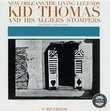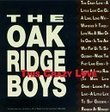| All Artists: Weingartner, Letonja, Sinfonieorchester Basel Title: Felix Weingartner: Symphony No. 1; König Lear [Hybrid SACD] Members Wishing: 3 Total Copies: 0 Label: Cpo Records Release Date: 9/21/2004 Album Type: Hybrid SACD - DSD Genre: Classical Style: Symphonies Number of Discs: 1 SwapaCD Credits: 1 UPC: 761203998128 |
Search - Weingartner, Letonja, Sinfonieorchester Basel :: Felix Weingartner: Symphony No. 1; König Lear [Hybrid SACD]
![Felix Weingartner: Symphony No. 1; König Lear [Hybrid SACD]](https://nationalbookswap.com/cd//l/08/0508/6120508.jpg) | Weingartner, Letonja, Sinfonieorchester Basel Felix Weingartner: Symphony No. 1; König Lear [Hybrid SACD] Genre: Classical Felix Weingartner was a multifaceted personality: conductor, piano soloist, music writer, educator, and composer. Weingartner is renowned as a conductor and as Gustav Mahler?s successor at the Vienna Court Opera. Weingartn... more » |
Larger Image |
CD DetailsSynopsis
Album Description Felix Weingartner was a multifaceted personality: conductor, piano soloist, music writer, educator, and composer. Weingartner is renowned as a conductor and as Gustav Mahler?s successor at the Vienna Court Opera. Weingartner regarded composing as his true calling, and his oeuvre is very extensive and covers a broad spectrum: seven symphonies, in addition to symphonic poems, operas, songs, and chamber music. Together with the Basel Symphony Orchestra (Weingartner was once its principal conductor) and its current principal conductor Marko Letonja, cpo plans a major edition recording Weingartner?s symphonic music in its entirety. The present Vol. 1 presents the First Symphony op. 23 and the Symphonic Poem King Lear, which received Mahler?s highest praise. Multi-format hybrid SACD in 5.1 multichannel surround sound. Similar CDs
|
CD ReviewsBetter than might be expected! E. Thomas Dowd | Akron, Ohio, United States | 08/02/2005 (4 out of 5 stars) "With few exceptions (Mahler comes to mind), great conductors have not typically been great, or even good, composers. Likewise, great composers are not necessarily great, or even good, conductors; Schumann and Brahms come to mind. Apparently the musical skills that enable success in one venue do not necessarily translate easily to the other. Weiengartner, however, may be something of an exception. He certainly was a great conductor. And, if these works are any indication, he is at least a good composer. While stylistically he is solidly in the 19th century central European tradition, his music is not immediately derivative of more famous composers from that era. More importantly, it is interesting music that has memorable phrases and seems to go somewhere, which is critical for ordinary listeners who are not well-versed in the technical nicities of symphonic construction and orchestration. Contrast Weingartner with Furtwaengler; the latter's music follows all the rules but is a crashing bore nonetheless. I commend CPO for releasing what looks like the complete symphonic works of Weingartner. For some interesting and off-beat repertoire, I'd suggest you explore these disks. I intend to." Weingartner the Composer? Surprisingly Good! J Scott Morrison | Middlebury VT, USA | 10/18/2004 (5 out of 5 stars) "Felix Weingartner (1863-1942) was, of course, primarily known as a masterful conductor who, among other things, was the first to record all of Beethoven's symphonies (and whose 1936 'Eroica' is certainly among the best ever made of that symphony). What most people don't know is that he was also a wonderful composer who, like many another conductor, really tended to think of himself primarily in that role; history, unfortunately, has thought otherwise. But here we have what purports to be the first issue in a series of recordings of his entire symphonic oeuvre by Marko Letonja conducting the Basel Symphony Orchestra on the cpo label. I say huzzah that! Although I'd never heard of Maestro Letonja -- he's a Slovenian who appears to be in his early forties and who studied under the still-underrated Otmar Suitner in Vienna -- he clearly is a marvelous conductor and his Basel orchestra, formed from the merger of two Basel orchestras in 1997-1998 and whose first recording this appears to be, is nothing short of outstanding.
Weingartner referred to his First and Second Symphonies as the 'symphonies of his youth.' That is as may be, but this First Symphony is one of the most immediately attractive things I've heard in a while. It was written in 1898, when Weingartner was 35, and is in a mélange of earlier German Romantic styles. There is no mistaking that Weingartner was master of the symphonic form. And even more important, to me at least, is that he has that rare ability come up with immediately attractive and memorable tunes . All the craft in the world won't help if a composer can't write melodies that people can hang onto in their mind's ear and that they want to hear again. Weingartner has this in spades. The symphony, seemingly based on folk-melodies although I don't recognize any of them and I suspect they are actually original with Weingartner, is a kind of 'Rustic Wedding' without the wedding. The first movement is a grazioso allegro whose first theme is especially appealing. The second movement is a slow, gently treading march. The third is a Mendelssohnian scherzo that features diaphanous textures and especially expert playing from the Basel winds; it also has a gently pensive trio section. The fourth is a rumbustious allegro vivo of rustic good humor. The first track on this CD is Weingartner's 'King Lear,' a symphonic poem written in 1895 when Weingartner was much more under the influence of Liszt's tone poems than he later was. (He had earlier, through the kind offices of Liszt, had an opera, 'Sakuntala,' produced at the Court Opera.) It is a 22-minute essay that conveys the various emotional tones and the main characters in Shakespeare's play without attempting to trace the play's story. Written for a large orchestra, it is a much more dramatic piece that the Symphony. One immediately hears a noble theme associated with Lear; it later becomes rather distorted as Lear's madness progresses. Cordelia's theme is a tender melody; her sisters and their consorts have grotesque themes that become conflated with the theme of the ravens' shrieks. During the heated conflict of the principals Weingartner combines all the themes much the way Strauss later did in his 'Heldenleben.' This piece is a tour de force of Lisztian style and although there are some passages that do seem to be marking time, this is an effective work for all that. If this issue is any sign of what's to come, we are in for a bonanza of late-romantic music from one of the 20th-century's greatest conductors and a fine composer as well. This is a hybrid SACD which I listened to on plain-vanilla CD equipment. The sound is exceptional and I can only imagine that it is spectacular in SACD surround sound. TT=56:55 Recommended. Scott Morrison" |



